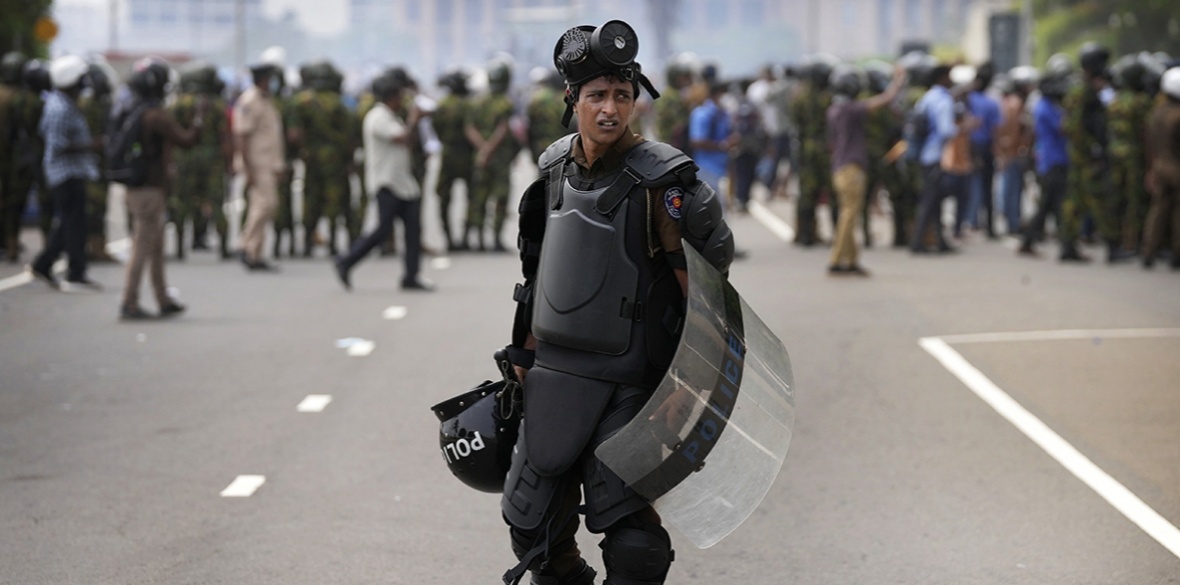This is the last article you can read this month
You can read more article this month
You can read more articles this month
Sorry your limit is up for this month
Reset on:
Please help support the Morning Star by subscribing here
SRI LANKAN Prime Minister Mahinda Rajapaksa resigned today following weeks of protests demanding that he and his brother, the president, step down over the country’s worsening economic crisis.
Mr Rajapaksa confirmed on Twitter that he had submitted his resignation to President Gotabaya Rajapaksa.
It follows an attack by the brothers’ supporters on a peaceful protest led by trade unionists demanding the pair to step down.
Armed troops were deployed in the capital Colombo today after an attack on protesters who had been camped outside the offices of the brothers for a month.
Similar protests have spread to other locations, with people setting up camps opposite the PM’s residence and in other towns across the country.
Rajapaksa supporters rallied inside his office earlier, urging him to ignore the protesters’ demands, requesting that he remain in office.
Local TV channel Sirasa showed pro-government supporters attacking protesters with clubs and iron bars, demolishing and later burning down their tents.
The protesters said that the police failed to prevent the attack— they had previously used tear gas and water cannons on the peaceful demonstrations.
TV footage showed government politician Sanath Nishantha was among the supporters who attacked the protesters.
At Colombo’s main hospital, 23 wounded people were admitted, an official said on condition of anonymity.
The violence triggered widespread anger, with people singling out Rajapaksa supporters and attacking them in many parts of the country.
Trade unions have called for protests this week.
Activist Saman Rathnapriya said that more than 1,000 unions representing health, port, education, and other key service sectors have joined the “week of protests” movement.
Workers will stage demonstrations at their workplaces across the country throughout the week, he said. They will then launch a march to parliament demanding the president’s removal and for a new government.
The PM’s resignation means that the entire cabinet will be dissolved, paving the way for a new government.
Sri Lanka is near bankruptcy and has suspended repayments of its foreign loans, and its inflation surged to 18.7 per cent in March.
A severe foreign currency shortage has resulted in acute shortages of imported essentials such as fuel, cooking gas and medicine.
A state of emergency was declared on Friday, empowering the president to authorise detentions, property seizures and searches, as well as suspending any law in the interest of public security.
Diplomats and rights groups have expressed concern over the move.











